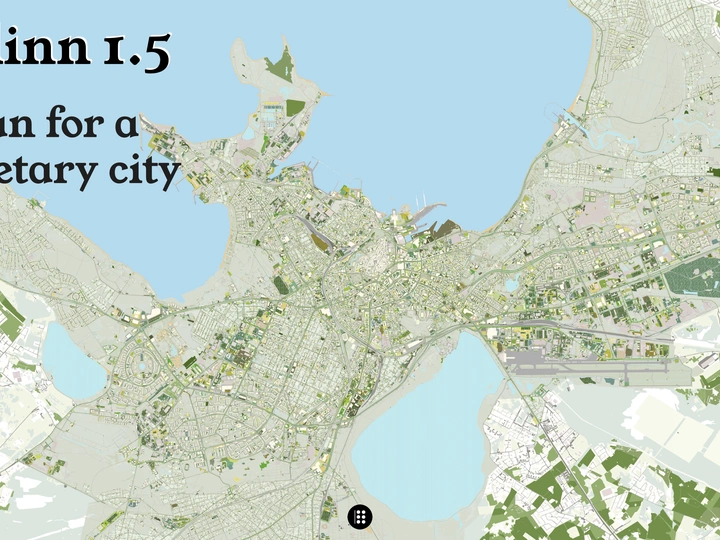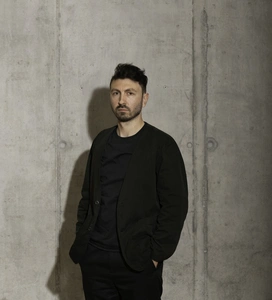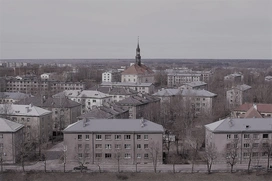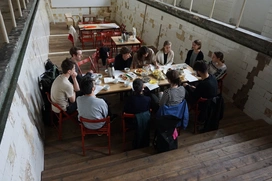Tallinn 1.5 - A vision for a planetary city.

Kristi Griśakov
John Hadaway
Jesús López Baeza
SPIN Unit is an urban research and innovation practice dedicated to discover noncommodifiable values and translating them into progressive drivers of change. Combining collaborative and inclusive research with speculative police design to cultivate the commons and nourish home-grown technologies.We develop methods to analyse cities’ environment and their cultural landscape, emphasising the significance of technology and the rules of media platforms in urban transformation.
Our project for the Tallinn Architecture Biennale is titled Tallinn 1.5: A Vision for a Planetary City, is an impossible plan for a self-sufficient city, displaying what Tallinn would look like if it produced all the food it needed to sustain itself — to help improve their health as well the one of our planet. The entire urban landscape was redesigned while maintaining liveability and functionality. No existing buildings or structure were transformed into food production facilities unless for obsolete industrial buildings. Streets width was reduced to accommodate fruit tree lanes and no existing green or recreational area was changed. Nearly 70% of the land transformed into food production was claimed from drivable yards. Those are all the yards and backyards usually dedicated to park and drive private vehicles out and around the lots. Transitions without conflicts require both time and public support. In this context, we proposed a carbon labelling system for food products to raise awareness of the ecological footprint of the food we eat. Besides including their carbon footprint, we also measured the spatial impact of food production on the city. This is a crucial factor when planning a self-sustainable Tallinn, and it’s a reality check for policymakers involved in this process. Food carbon labelling will change by the addition of land use efficiency to the equation, to display both the carbon and the urban impact of food production. This is calculated as a ration between the space needed and the carbon emitted to produce one calorie of each food type. Leveraging on a minimalistic design that uses two different scales, we want to change the medium to inform citizens and raise their awareness of their daily habits. This starts by supporting interdependent sub-communities and sustaining the individuals that give them life. Most of all, it suggests that the time is now to take action, that there is no time — or food, for that matter — to waste.


